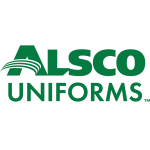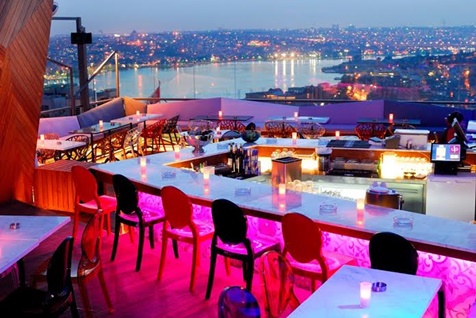Prestige and fulfillment are two things that often come to mind when envisioning restaurant ownership. It is largely assumed that owners of restaurants are, by default of their business nature, doing well. This perception can be deceiving, however; a sign that reads “open” and food being prepared in the kitchen is not a fair measure of overall business success.
While those two things are key ingredients in a complex dish, it takes far more to complete the meal. If success is on the menu, you’ll need the recipe for turning your good restaurant into a great business.
Humble Beginnings
Ask most restaurant owners what inspired them to open their own dining establishment and you will likely find the same riveting culprit: Passion for food. A flair for “all things food” charms those who consider themselves lucky diners; friends and family whose happy tastebuds solicit the one comment that any accomplished culinarian loves to hear: “You should open your own restaurant!” Sometimes this invokes a giggle, but sometimes it sparks a dream.
Successful entrepreneurs most often possess inherent characteristics that serve to navigate and fuel their ambitions and achievements. They are self-motivated visionaries. They have mastered the art of creating something that the general public receives and creates a demand for. Knowing how to run a cafe or a restaurant is essential; knowing how to manage a successful business is absolutely critical.
An owner must hone skills in four major areas of business: finance, marketing, administration, and operations while simultaneously defining a balanced and personal role distribution among each of them.
Research Saves Businesses
The most refined of diners view dining not simply as eating, but as a balanced, sensory experience. They typically begin that experience with an appetizer–something that is enjoyed as a precursor to a meal. A wise restaurateur should see research and planning as the parallel of a gripping appetizer. DO NOT forego diligent research.
This is quite possibly one of the biggest mistakes that a potential restaurant owner can make. Plenty of other successful restaurateurs have been in the trenches before you and many of them have shared their tried and true methods of not only getting out of the trenches but climbing to the top of the mountain. It may sound cliché, but why reinvent the wheel?
Focusing your energy on building upward by avoiding the negative experiences of others can only serve to make your business even greater.
Don’t Do It Alone
One of the first things that a restaurant owner needs to embrace is acceptance of the fact that this is not a one man show. Running a restaurant as if it is, is professional suicide. How many times have you walked into a restaurant and found but one single person there, doing it all?
If on occasion you have, it was likely not the best dining or service experience. It is virtually impossible to prep, cook, wait, serve, cashier and clean with any degree of service or quality considered a triumph.
Delegation often feels like a dirty word for new business owners. They have a great deal of time and money invested in their venture and it’s difficult to trust that anyone else will care as much or give as much for the cause of succeeding.
This is a mentality that must be abandoned immediately and replaced with thoughts of hiring and molding good people into an exquisite support system where everyone feels personally vested in the success and longevity of the restaurant. Trust must be an appropriately placed element of a restaurateur’s personal growth.
Carefully Groomed Operating Systems
Developing an operation’s manual can feel reasonably daunting. Ease the grind by envisioning your restaurant in picture perfect operation and then transfer your vision into written word.
Keep in mind that team of vested support staff and the guidance they will need in order to bring your established values to fruition. Networking and online resources can provide examples of well-written operations manuals. Don’t be afraid to mimic format, policies or procedures that apply well to your business model, selecting tidbits from multiple places to create your own manual.
Take the initiative to involve staff experience and perspective when revisions become an obvious necessity. As business climate evolves and changes, you may find it necessary, or wise, to revise your operations procedures and manuals. Like the rest of your business, see it as an ongoing work of art.
A comprehensive System for your restaurant will:
- Accelerate Profitability. Avoid confusion during the start-up of your restaurant. Procedures, forms, and checklists keep things well organized and enforce established expectations. Getting routines smoothed out as quickly as possible is empowering for your staff, a sanity clincher for you and is a huge stride toward profitability.
- Develop Your Professional Support Staff. Being organized and serious about your restaurant will attract good people who are dedicated and serious about what they have to offer. They expect fair and ethical systems for hiring employees and their desires to perform well must be supported with concise job descriptions, procedure manuals and an employee policy booklet.
- Provide Concise Direction. A system communicates clear expectations to your staff. The results you receive will be in direct correlation to what you have provided your staff in the way of information and training. They want to be successful, you need them to be successful, so be sure to empower them with the resources they need to do just that.
- Create Consistency. Systems make it possible for your employees to replicate the performance that creates a consistently positive experience for your guests. Consistency is the key to creating a great reputation and loyal, repeat customers who will refer others your way as well.
- Help Raise Capital. Systems are evidence of an engaged, well-rounded business ownership. They are the result of developing, implementing and realization of a strong business plan. These things are all imperative when expansion capital is desired. Consistently working a solid plan reinforces credit worthiness and business stability in the eyes of lenders, who desire some form of reassurance that growth will not lead to the demise of your restaurant.
- Give You Wings. Undeniably, part of the allure of owning a business is the hope that at some point in time you will be afforded more freedom to pursue other things in life that you enjoy. Being a captive of your business will only contribute to owner burnout, another issue that contributes widely to the fall of many a food establishment. Solid systems empower your staff to function at their peak, even in your absence.
- Attract Buyers Should You Decide to Sell. Owner-dependent businesses pose more difficulty with selling and are less valuable than businesses capable of functioning well with minimal owner involvement. Prospective buyers are more enticed by a business opportunity that operates successfully with minimal owner participation.
Documenting your systems and operating procedures is the best way to detour major issues as well. Of course going into restaurant ownership, focusing on positive movement is always preferred, however, have the documentation to handle crisis if it should occur represents business wisdom and prudent planning.
Preparing an Expansive Operations Manual
What to Include:
A restaurant operating manual should cover in detail the following sections or categories:
- Kitchen and menu management
- Dining room management
- Bar and beverage management
- Human Resources
- Purchasing and inventory
- Staff training
- Sanitation and cleanliness
- Safety, security and emergency management
- Marketing, promotions and public relations
- Financial management
- Equipment management
- Facilities management
Each of these areas should contain clear, concise instruction on how to carry out day-to-day tasks, responsibilities and expectations. The idea is to provide well-planned procedures, policies, forms and checklists to guide and empower your staff.
Inevitably, there will be situations that arise where little to no guidance has been documented.
Remember that trust we discussed earlier? Your well trained, personally vested support staff should be afforded the authority to make reasonable decisions in your absence.
This furthers their personal investment in the company and if your systems have done their job well, the staff person’s decision will be a direct reflection of the values that your systems have instilled in them.
Each category should be addressed thoroughly so that a new person could easily navigate through daily tasks if needed on short notice and with little hands-on training.
Alsco would like to thank Elton Fawkes of Adage Furniture. Adage Furniture is a Western Australian family-owned business with WA’s largest stock holding of commercial grade chairs and tables. Adage Furniture also supplies custom designed and manufactured locally made products which enable them to deliver the complete package to clients, on time and on a budget. For more tips on how to grow your restaurant, café or bar, visit Adage Furniture’s Blog where there are a great number of resources for helping hospitality businesses succeed.
And of course if you’re starting up a new hospitality business or planning to refurbish, check out the range of furniture on the website or book an onsite appraisal.
For a wide range of fully-managed rental services for your restaurant, partner with Alsco. Alsco ensures you have a clean, hygienic restaurant both for your staff and customers. Call 1300 659 892 or visit www.www.alsco.com.au to learn more.


